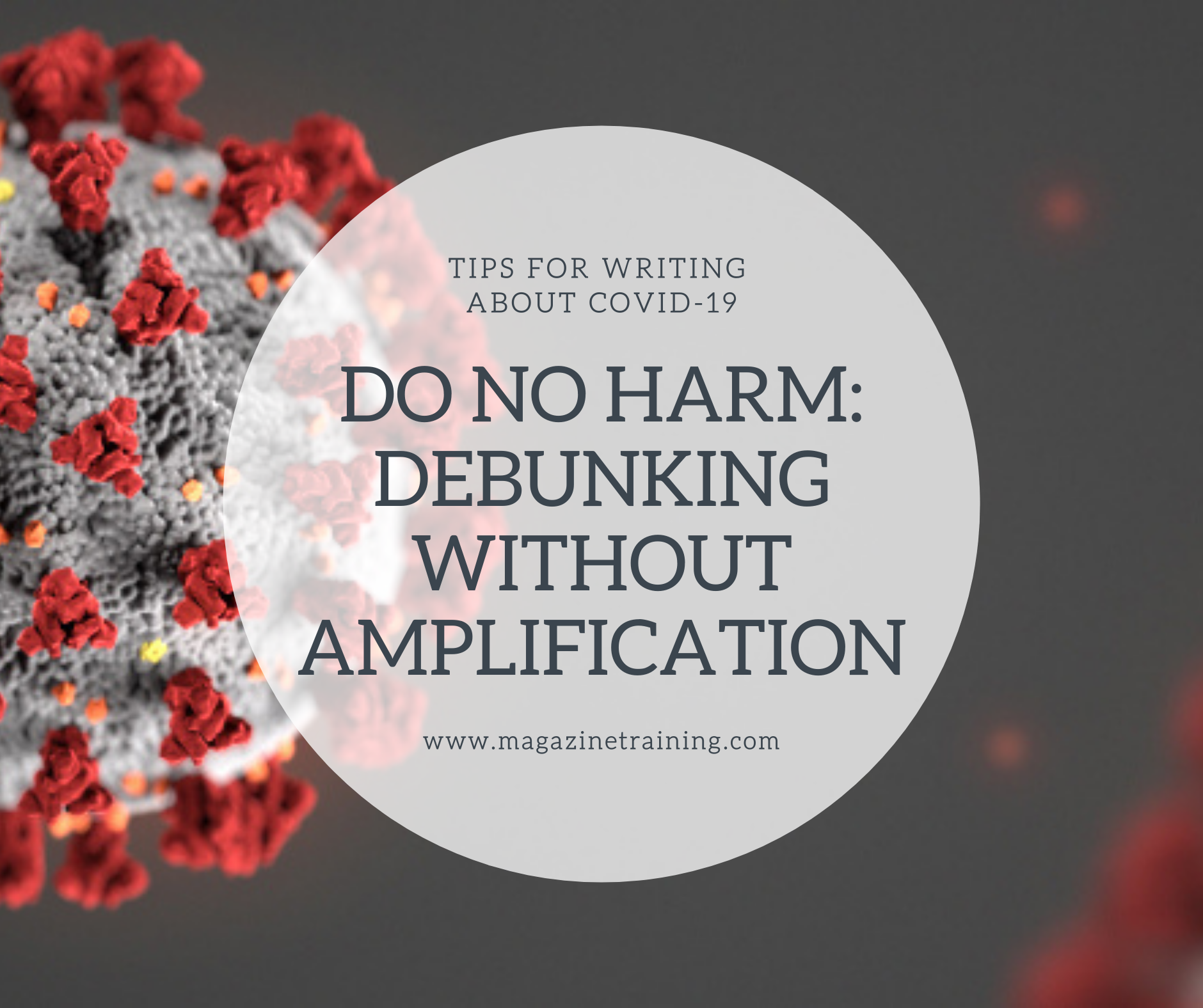
A review of the evidence
What role does “the media” play in the spread of misinformation? A literature review published last month in the Annals of the International Communication Association tried to answer that question.
Looking at previously published studies, the piece argues many “fake news sites” wouldn’t get much traction without the attention of more mainstream outlets. The authors define fake news as using, “journalistic rhetoric, formats and reporting styles for the intentional dissemination of false, invented, information.”
For example, they note that in fact-checking misinformation, the media paradoxically must repeat the false claims giving, them more exposure than the claims would otherwise get.
The question of whether journalists amplify misinformation even as they debunk it has long been a topic of debate surrounding fact-checking. In order to debunk a falsehood, it has to be exposed. It’s the double-edged sword of the business.
Is that exposure necessary to stop the spread? Here there is some better news for fact-checkers.
A report published last month by Emeric Henry, Ekaterina Zhuravskaya and Sergei Guriev for VoxEU.org showed that exposing Facebook users to fact-checks or allowing them to fact-check themselves led to a 25% drop in the sharing of false news.
Another study by researchers at NYU’s Tandon School of Engineering showed individuals were nearly twice as likely not to share misinformation that had been flagged by a fact-checker compared with misinformation flagged by other sources.
The U.S. State Department’s Global Engagement Center wrote in its March report that the ineffectiveness of fact-checking is itself a myth. The center cited a 2016 study by Thomas Wood and Ethan Porter that failed to replicate earlier evidence of a so-called “backfire effect.”
The authors of the recent literature review acknowledged that there’s a dearth of empirical evidence on the connection between journalists and the spread of false information.
“In order to inform mainstream news media on how to best tackle the challenges fake news pose to the citizenry, much more theoretical and empirical research is required,” they wrote.
– Harrison Mantas, IFCN
. . . technology
- We bristle when people use the words “fact-checking” to describe what Twitter is doing to label tweets that contain falsehoods. In fact, even the company says its “focus is on providing context, not fact-checking.”
- That said, Twitter is now adding labels to tweets that link 5G cellular technology to the coronavirus, Business Insider reported.
- More than 140 scientists funded by Facebook CEO Mark Zuckerberg wrote him a letter this week urging him to prohibit President Donald Trump from using the social media platform to “spread both misinformation and incendiary statements.”
- The letter cites Trump’s recent tweet saying that “when the looting starts, the shooting starts,” which it said “is a clear statement of inciting violence” that violates Facebook’s community standards.
. . . politics
- The EU’s diplomatic chief, Josep Borrell, told European countries they needed to spend more resources to fight disinformation from China, saying that the bloc was being “naive” in its dealing with Beijing, AFP reported.
- Meanwhile, Reuters reported that TikTok’s new Chief Executive Kevin Mayer has told EU digital chief Thierry Breton he intends to play an active role fighting disinformation.
- President Trump tweeted Tuesday a conspiracy theory that a 75-year-old protester who was pushed to the ground by police in Buffalo, N.Y., last week and is still hospitalized “could be an ANTIFA provocateur” and “fell harder than he was pushed.”
. . . science and health
- Inside Higher Ed’s Elizabeth Reddon has a thorough explainer of an emerging debate over whether scientific papers are being rushed into publication. Advocates of “preprinting” unvetted papers argue that the coronavirus pandemic makes early publication urgent. But others say they can contribute to the spread of disinformation and be used to hijack public debate, she wrote.
- “Journals have sped up time from submission to publication, and scientists have uploaded thousands of papers to open-access preprint servers without first going through the normal peer-review process,” Reddon wrote.
- Brazil restored its COVID-19 data website after an order from the country’s supreme court. Over the weekend, the Health Ministry had stopped releasing cumulative infection and death totals.
- Brazil has the second-highest number of COVID-19 cases in the world behind the United States, according to data from Johns Hopkins University.
by Harrison Mantas and Susan Benkelman, Poynter
Related posts
Magazine Training International’s mission is to encourage, strengthen, and provide training and resources to Christian magazine publishers as they seek to build the church and reach their societies for Christ.

